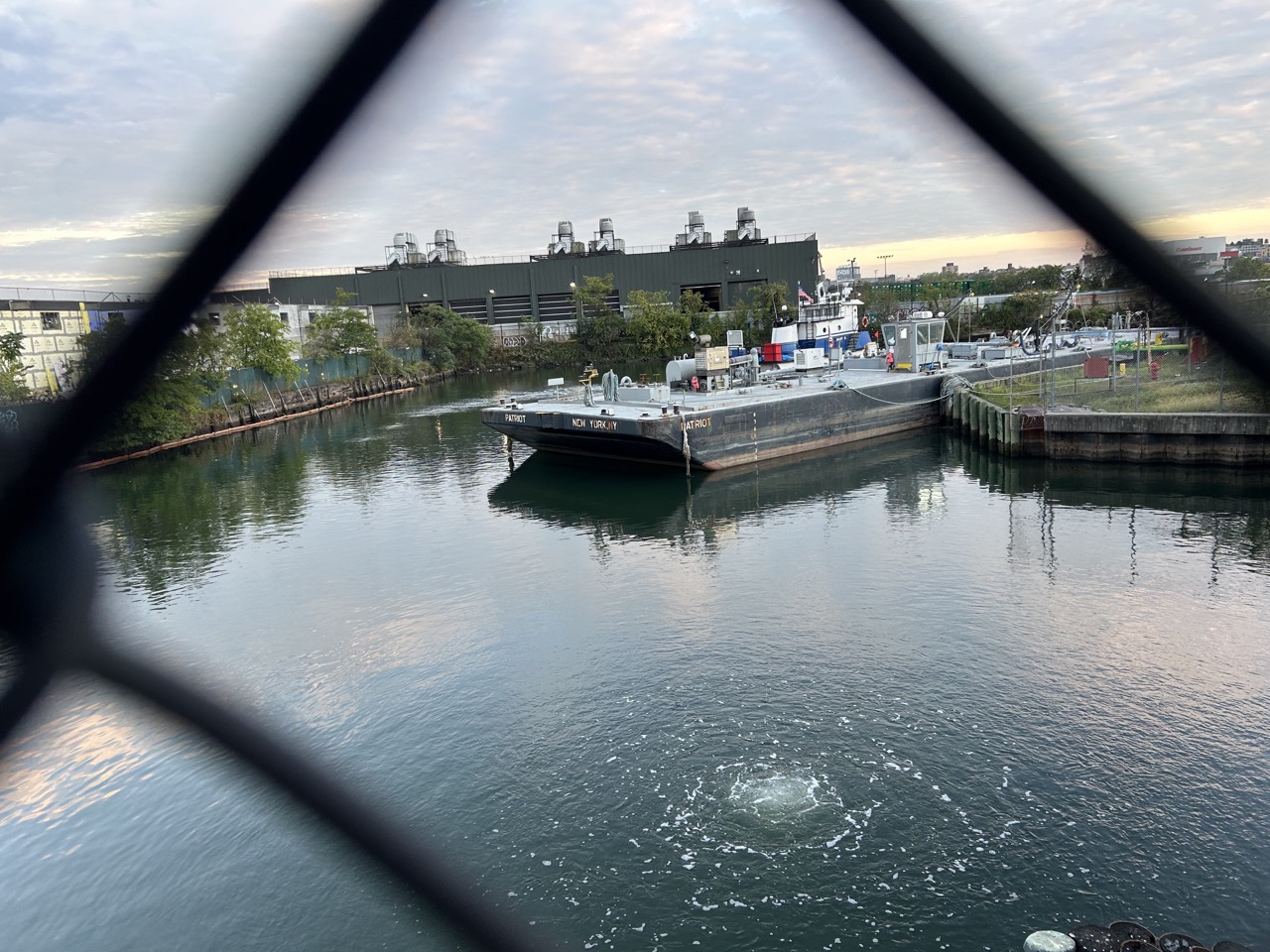
A sour smell like spoiled milk lingers in the air as trucks rattle past on the John Jay Byrne Bridge that connects Brooklyn to Queens. The culprit could be a three-story garbage pile half a mile away, the eight towering metallic silos from a kitty-corner wastewater treatment plant, or most likely, the gasoline- and garbage-infested Newtown Creek, which has the dark green hue of a neglected fish tank.
Potentially the most polluted waterway in the United States – according to the Environmental Protection Agency (EPA) – Newtown Creek’s designation over a decade ago as a high-priority cleanup site has done little to ease the nerves of its neighbors.
“Does it make the ground dirty? Or get into the pipes for the water? I’m sure it does. And I drink this water,” said Andris Castillo, 34, a Dominican man who works at D&J Grocery three blocks from Newtown Creek in East Williamsburg. He points to a small porcelain sink behind his plexiglass-enclosed cashier’s chair. “I know it’s contaminated, but what am I going to do?”
Newtown Creek, which weaves between East Williamsburg, Long Island City, Greenpoint, and several other Brooklyn and Queens neighborhoods, spills into the East River across from 30th Street in Manhattan. Its EPA high-priority cleanup status, known as a Superfund, was meant to rush cleanup efforts in a creek that has seen nearly two centuries of industrial dumping.
“It has been a long, slow process. But we have tried to help it along, mainly by getting people involved,” said Sandy Li, Community Engagement Coordinator for the Newtown Creek Alliance (NCA).
The NCA has worked with the EPA to regain the creek since 2002 – back when ExxonMobil’s decades-long oil spill, the Greenpoint Oil Spill, was in the throes of cleanup.
Charlie Griemsman, a 24-year resident of Williamsburg, said, “where I work is near [Newtown Creek]. I knew from reading about it that it was really polluted, but when I started walking across it for work I could see all the garbage and oil and everything.” Griemsman’s experiences led him to a recent NCA public meeting. “The more I’ve walked across it, the more nervous I’ve gotten.”
Despite the added attention since its Superfund status, Newtown Creek has been in a near-gridlock for the last decade-plus – cleanup is currently in a public comment period until October 28 – which comes as little surprise to some residents.
“Me, and the people who work or live around here can’t do anything about it. This is capitalism, and we are the poor,” said Castillo, as he leaned his elbows onto the granite cashier’s counter across his swivel chair. “Who would I complain to? The government? Who brings in the gasoline? The government. The food? Government. Who made the river? Why complain to the same person who makes the decisions.”








